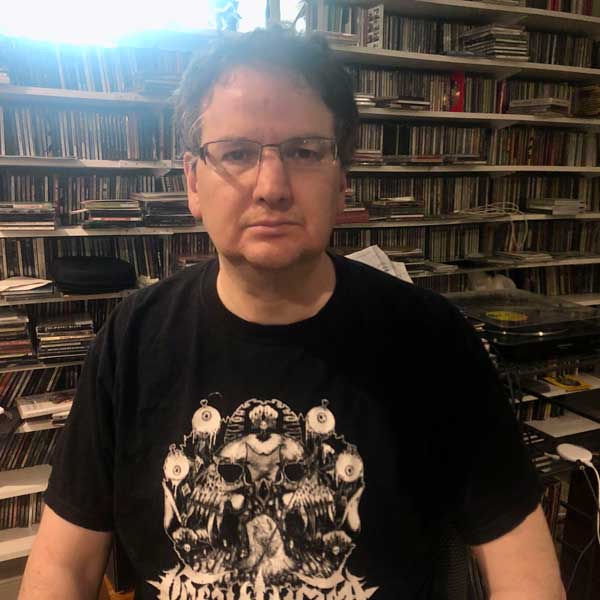“This band works like a ouija board. No one’s fully in charge of how it operates, but you keep looking at the letters and seeing what they spell”: How Pearl Jam made Lightning Bolt and embraced their inner Pink Floyd
Thirty years after being blindsided by fame, Pearl Jam were still doing things on their own terms

Pearl Jam are grunge’s great survivors, the only band from the early 90s Seattle scene to maintain an unbroken career. In 2013, they released their 10th album, Lightning Bolt – a record which, as guitarists Mike McCready and Stone Gossard said at the time, found them easing into a new phase of their career and lives.
In October 1993, Pearl Jam were on top of the world and unravelling like a poorly-sewn flannel shirt. The band had just released their second album, Vs. It sold 1.3 million copies within 10 days and topped the US chart for five weeks. Vocalist Eddie Vedder featured on the cover of Time without consenting to an interview; the more they tried to avoid the mainstream, the more it followed them. Some band members drank heavily, others withdrew.
“It felt like we could break up at any time,” guitarist Mike McCready says from his Seattle home, back from a day’s paddle-boarding in the Puget Sound. “That’s why we stopped doing videos – we didn’t want to be totally overexposed. But the record company wanted us everywhere, and there were trust issues within the band and questions about authenticity. We actually had to sit down and say: ‘Hey, do you still want to be in the band, Ed? Do we still want to do this? Is this fun for us?’ It was a weird, scary time.”
That’s when Pearl Jam established the unofficial code that’s kept them relatively well-adjusted ever since. Instead of allowing the seas of change to carry them like shells, they decided to call the shots themselves. Their deadlines would be self-imposed, they would partake in side projects and do very little press (Vedder maintained radio silence for this piece).
Fast-forward to 2013 and Pearl Jam are the only major Seattle band that haven’t broken up or lost their mainstream following. They’ve outlasted and outsold Nirvana, Soundgarden (with whom they share drummer Matt Cameron) and Alice In Chains. They remain one of the most popular touring bands on the circuit, outselling contemporary acts that sell far more albums. Vedder may not climb lighting trusses and dangle 30 feet above the stage like in the early 90s, but Pearl Jam have grown as musicians. With the release of new album Lightning Bolt, they have 10 albums of material to draw from. Their concerts are often over two hours long and feature radically different sets, leading to comparisons to classic jam band the Grateful Dead.
“The Grateful Dead are definitely a template to be understood in regards to this band, and not because we sound like them,” guitarist Stone Gossard explains, at his Oregon vacation home overlooking the Pacific. “The Dead were one of the first bands to create their own universe, do their own thing and keep going forward. The reason we’ve been successful is we haven’t looked back too much. If you do that, you get stuck doing things a certain way because you feel like that’s what’s expected. We’re pretty good at forgetting about what we did before and moving ahead at our own pace.”

Pearl Jam’s new album is a band following its own muse. Unlike 2009’s poppy Backspacer, Lightning Bolt is less focused and more spontaneous-sounding. It feels like the band started jamming to create a batch of eclectic songs ranging from propulsive rockers like album opener Getaway, fast, angular, Dead Kennedys-inspired Mind Your Manners and the anthemic title track, to more experimental cuts, including acoustic-based Sirens, jaunty, jazzy Infallible and melancholic Yellow Moon. If it seems Lightning Bolt is emblematic of a band throwing caution to the wind and cranking out a great bunch of diverse songs, then the band achieved their goal. In reality, its creation wasn’t nearly so simple or enjoyable, requiring two recording sessions and more heated arguments and hair-pulling than members had experienced in years.
Sign up below to get the latest from Classic Rock, plus exclusive special offers, direct to your inbox!
“I’m glad the album sounds immediate, because the process definitely was not,” McCready says. “There was a lot of work and a lot of struggle to decide what we really liked.”
“There were differences in opinion about each and every thing,” adds Gossard. “We could have argued until the cows come home about every arrangement and every song. But we have learned not to do that. You gotta pick your fights, and if you don’t win you have to get over it and move on because there’s going to be another fight two days later that you need to figure out how to move through. But a lot of times moving through it and finding the common ground or the compromise that makes the most sense is the way to create the best songs. And we’re all really happy with this album.”
In the past, the thematic tone of Pearl Jam’s albums was partially dictated by their environment. Their earliest material resonated with the frustration of wanting to rock out without being scrutinised. The sombre Riot Act, which came out in 2002, was influenced by the terrorist attacks of 9/11 and the deaths of nine fans at the 2000 Roskilde Festival. The pop and new-wave styles of 2009’s Backspacer were a result of positivity in the air after the election of Obama. Lightning Bolt has more to do with retaining youthful spirit in the face of age and accepting mortality.
“It’s hard to speak for Ed [Vedder], and he wrote a lot of the lyrics in the last six weeks, but he’s saying a lot, for sure,” Gossard says. “I think there’s a lot there about our continued middle-aged experiences. Everyone’s in a long-term relationship. Everyone’s got parents that are a getting older and more frail. And we’re all experiencing the digital internet age of way too much information all the time. There are a variety of crazy military conflicts, famines, murders, terrorist activity, and everything you can possibly think of is coming at you a thousand miles an hour. I think that’s where the energy of a lot of these songs is coming from – a lot of different places.”
Pearl Jam started writing for Lightning Bolt in early 2011. When the band entered Henson studio in Los Angeles with long-time producer Brendan O’Brien later that year, they had 16 songs to work with including Getaway, Infallible and Sirens, the latter written by McCready after watching Roger Waters perform The Wall live.
“I was totally blown away by that,“ he says. “I don’t think I’ve ever seen something so powerful, and I doubt I ever will again. And it inspired me to write something that had that middle-era Pink Floyd sound. But I didn’t know it was going to turn into a dark, ominous, beautiful ballad until I heard Ed’s lyrics. He stayed up all night and wrote them in California. You hear police sirens in the Hollywood area all the time. And when I heard what he’d written about – the preciousness of life, and hearing sirens and not wanting them to come for him this time. Or are they? Or am I grateful that they’re not?”
Pearl Jam hoped to record quickly and set up a tour, but it became clear that Vedder wasn’t happy with much of the material. Sixteen songs got hacked down to six, three of which wound up on the record. The band wanted the album to be more upbeat and aggressive than what was left.
“We didn’t want it to sound too slick,” says Gossard. “There’s a tendency as you get older and become better musicians to file down the rough edges that can make a song sound good. Whereas if you’re a younger band and you have limited time in the studio, you’d keep the raw sound because you don’t know any better. We didn’t want this record to sound too polished. We really wanted it to hit the listener at a gut level.”
After the studio, Pearl Jam launched a South American tour. They planned to reconvene in their Seattle practice space at the end of the tour, but instead they took time off and flexed other creative muscles. Vedder played solo gigs; Gossard toured with side project Brad and released his second solo album, Moonlander; McCready scored the film Fat Kid Rules The World; bassist Jeff Ament worked on his second solo release, While My Heart Beats. When they were all ready to return to Lightning Bolt, Brendan O’Brien wasn’t available, and then Cameron got back together with Soundgarden to tour and record their 2012 comeback record King Animal.
“I don’t feel like Soundgarden were a big obstacle to Pearl Jam, except in terms of my sanity,” Cameron says. “The past three years for me have been pretty much a blur. But both bands have their own chemistry, so I’m pretty able to keep them separate as a player, and I’ve made time for both.”
In March, when Soundgarden finished touring and O’Brien was available, Pearl Jam returned to LA to finish Lightning Bolt. At first they were frustrated to be working on an album that felt old. But as they got into the process and listened to what they’d recorded, the more excited they became about the faster songs they’d written, including Mind Your Manners and the title track.
“It was good to have that time to listen to what we did and react to it,” Gossard says. “It was a slightly stretched-out process, but as 40-something-year-old men making rock records, three years is not a crazy amount of time to spend.”
Two weeks before the final session, Gossard wrote the rockabilly-tinged Let the Records Play (which would fit perfectly in an episode of True Blood). Apart from a vintage Pearl Jam chorus, it’s an indication that, 20-plus years down the line, there’s room for them to grow musically.
On Mind Your Manners and Getaway, Pearl Jam draw from a similar energy to the early 90s. But they can’t bounce back as quickly from celebrating. “You wake up and there’s a lot more, ‘Oh God, that hurts,’ than there was back then,” McCready admits. “There’s a lot more maintenance these days in order to do what we do. I work out and we all either run or surf or ski or lift weights or do yoga. There are a new set of priorities as we get older.”
Between the recorded catalogue and the stage show, Pearl Jam have become an institution, an anti-corporate corporation. Time, persistence and talent have allowed them to make their own rules, even if the ultimate axiom is ‘there are no rules’.
“This band kind of works like a ouija board,” concludes Gossard. “No one’s fully in charge of how it operates, but you keep looking at the letters and seeing what they spell. And when the planets align you’ve gotta be ready to go.”
Originally published in Classic Rock issue 190, October 2013
Jon Wiederhorn is a veteran author, music journalist and host of the Backstaged: The Devil in Metal podcast. He is the co-author of the books Louder Than Hell: The Definitive Oral History of Metal, I’m the Man: The Story of That Guy From Anthrax, Ministry: The Lost Gospels According to Al Jourgensen, My Riot: Agnostic Front, Grit, Guts & Glory, and author of Raising Hell: Backstage Tales From the Lives of Metal Legends. He has worked on staff at Rolling Stone, MTV, VH1, Guitar Magazine, Guitar.com, Musician.com and Musicplayer.com, while his writing has appeared in TV Guide, Blender, SPIN, Classic Rock, Revolver, Metal Hammer, Stuff, Inked, Loudwire and Melody Maker.



